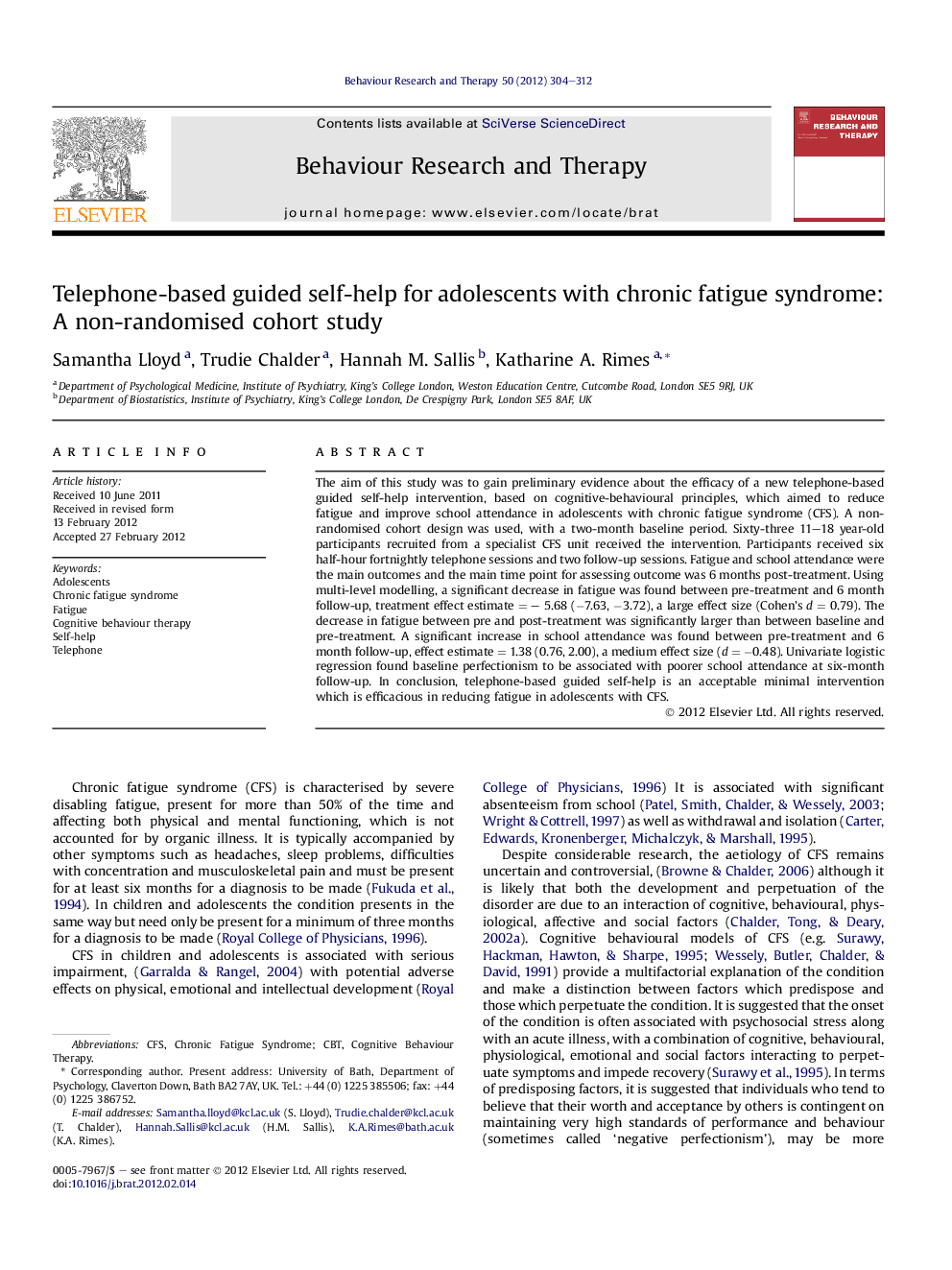| Article ID | Journal | Published Year | Pages | File Type |
|---|---|---|---|---|
| 901989 | Behaviour Research and Therapy | 2012 | 9 Pages |
The aim of this study was to gain preliminary evidence about the efficacy of a new telephone-based guided self-help intervention, based on cognitive-behavioural principles, which aimed to reduce fatigue and improve school attendance in adolescents with chronic fatigue syndrome (CFS). A non-randomised cohort design was used, with a two-month baseline period. Sixty-three 11–18 year-old participants recruited from a specialist CFS unit received the intervention. Participants received six half-hour fortnightly telephone sessions and two follow-up sessions. Fatigue and school attendance were the main outcomes and the main time point for assessing outcome was 6 months post-treatment. Using multi-level modelling, a significant decrease in fatigue was found between pre-treatment and 6 month follow-up, treatment effect estimate = – 5.68 (−7.63, −3.72), a large effect size (Cohen's d = 0.79). The decrease in fatigue between pre and post-treatment was significantly larger than between baseline and pre-treatment. A significant increase in school attendance was found between pre-treatment and 6 month follow-up, effect estimate = 1.38 (0.76, 2.00), a medium effect size (d = −0.48). Univariate logistic regression found baseline perfectionism to be associated with poorer school attendance at six-month follow-up. In conclusion, telephone-based guided self-help is an acceptable minimal intervention which is efficacious in reducing fatigue in adolescents with CFS.
► This study investigated telephone-based guided self-help based on CBT principles. ► Treatment was efficacious in reducing fatigue in adolescents with CFS. ► The intervention was acceptable to adolescents and parents. ► Higher baseline perfectionism predicted poor school outcome at 6 months follow-up.
